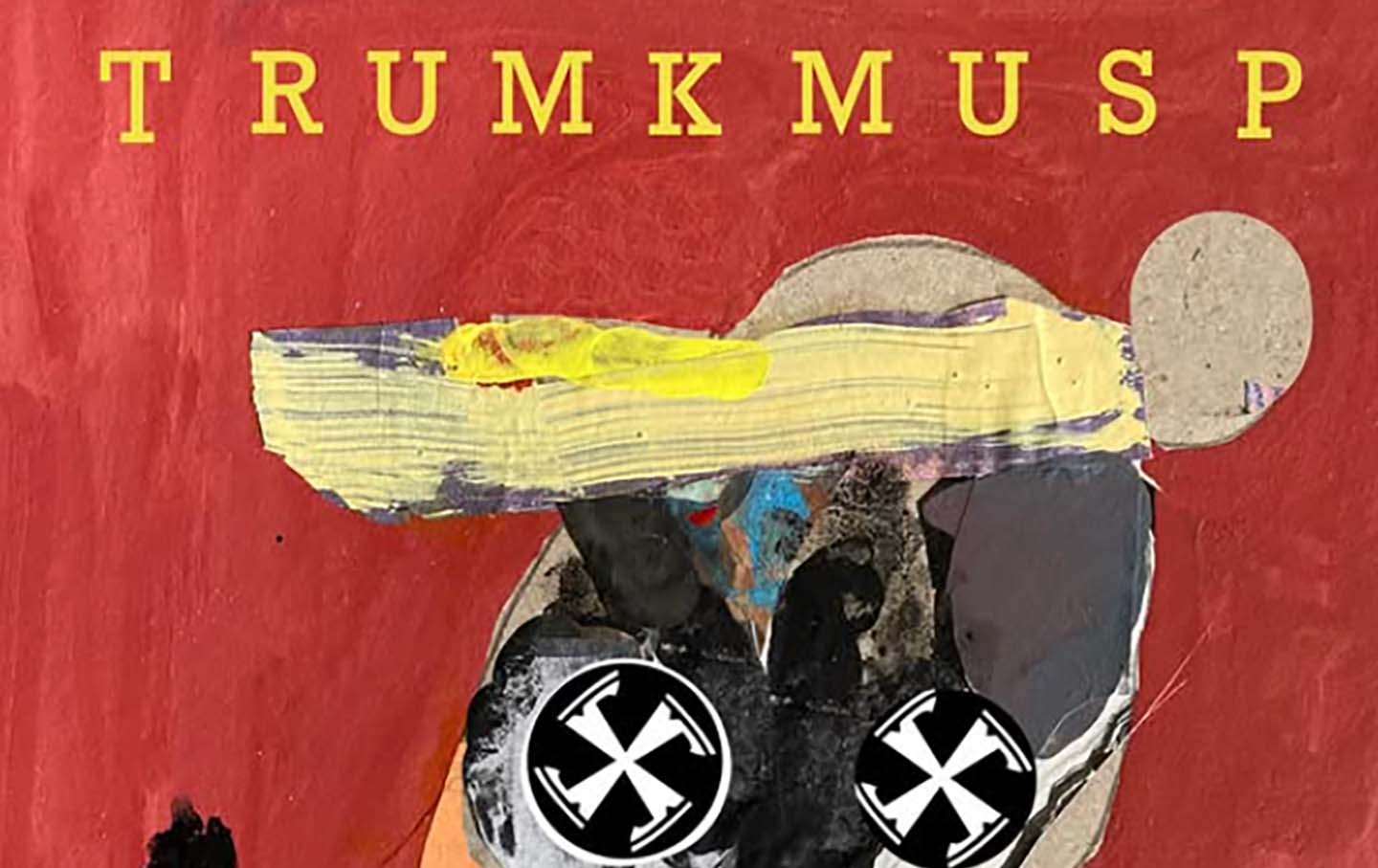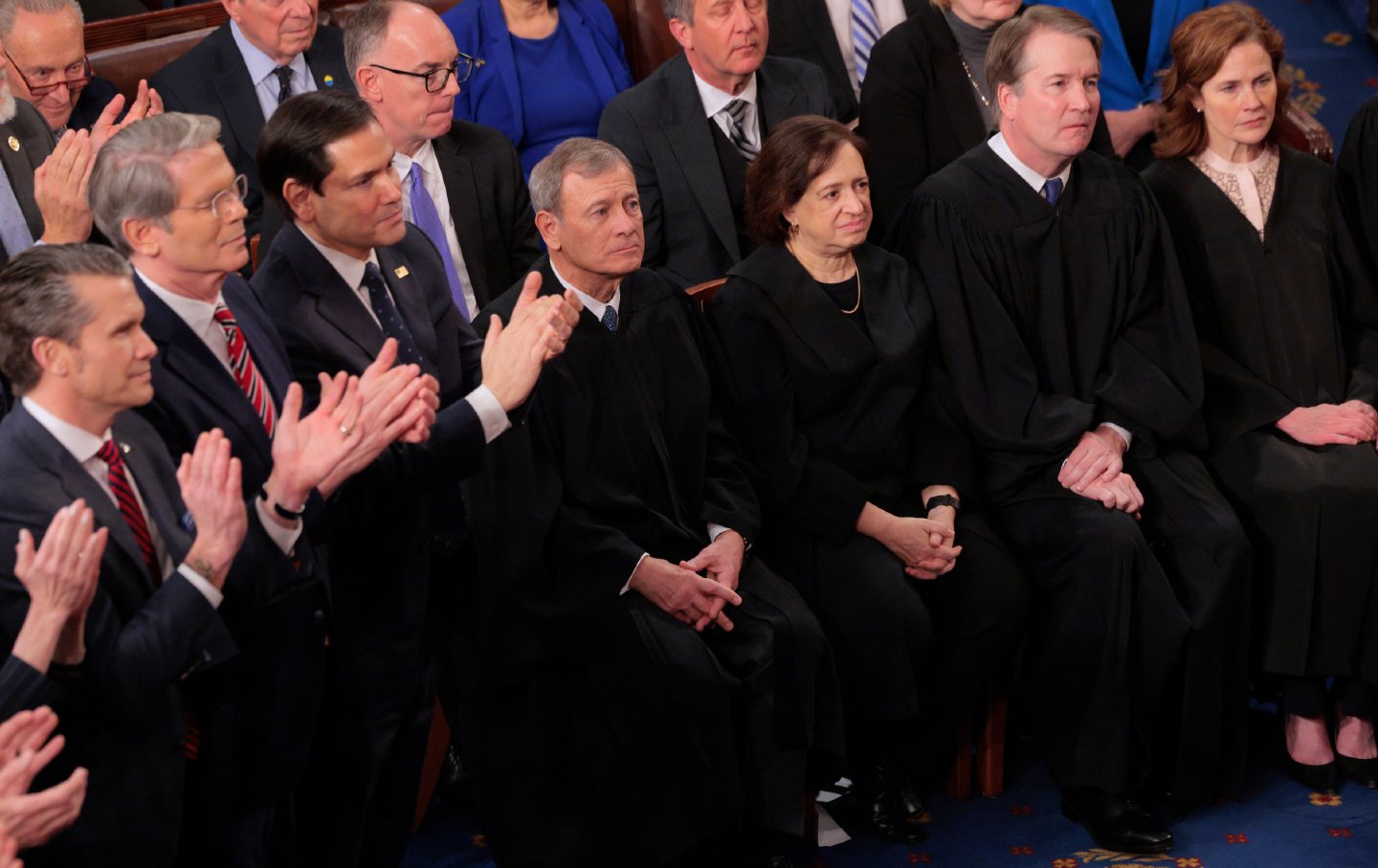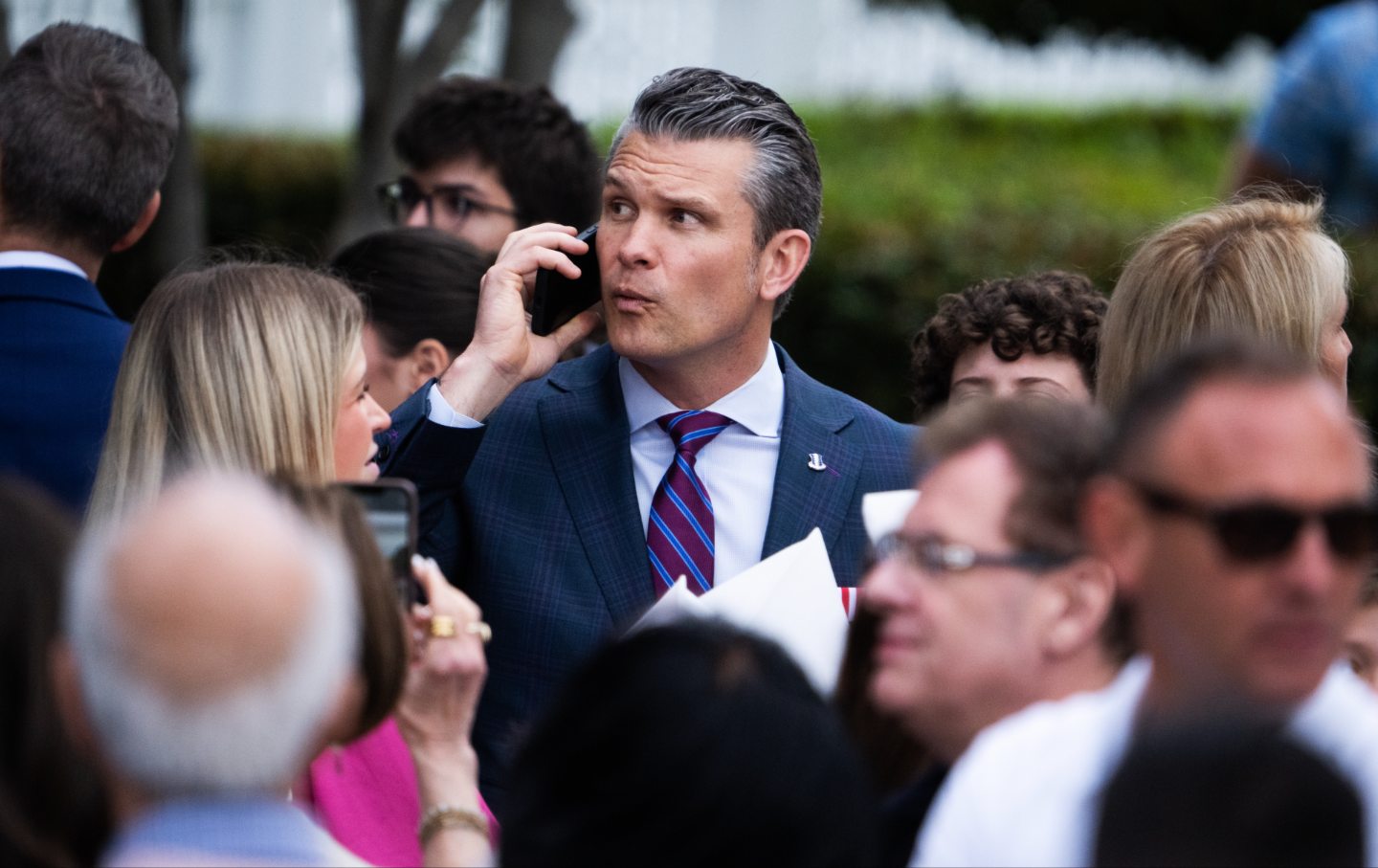Meet the Kentucky Republican Who Beat AIPAC
So many Democrats are afraid to stand up to the powerful pro-Israel group. But a Republican congressman has done so, and he just scored a big primary win.

Representative Thomas Massie (R-KY) speaks during a news conference with Representative Marjorie Taylor Greene (R-GA) outside the US Capitol on May 1, announcing that they will move forward on the motion to vacate Speaker Mike Johnson.
(Bill Clark / CQ-Roll Call, Inc via Getty Images)It is well understood that the powerful American Israel Public Affairs Committee is targeting progressive Democratic members of the US House who have dared to object to the government’s support of Israel’s assault on Gaza, including the continued provision of US military aid, for defeat in 2024 primaries. What is not as well known is that AIPAC has also poured hundreds of thousands of dollars into attacking a Republican incumbent.
His name is Thomas Massie. He’s a 53-year-old former local official from northern Kentucky who since 2013 has represented one of the most overwhelmingly Republican districts in the country. Massie proudly declares himself to be a “true conservative” and celebrates the fact that he enjoys “the most conservative lifetime rating of any Kentucky congressman” from groups such as the National Taxpayers Union and Gun Owners of America. Most recently, the congressman joined Representative Marjorie Taylor Greene in a failed attempt to oust Speaker Mike Johnson. But on matters of war and peace, he often sides with progressives, positioning himself as a libertarian-leaning Republican who opposes US military interventionism and military aid packages for foreign countries, including Israel. That stance has drawn sharp criticism from neoconservatives in general, who worry about the return of the sort of old-school Republican isolationism that reflexively opposed military interventions and foreign aid packages, and in particular from AIPAC, which has objected to his many votes against aid to Israel, as well as his rejection of resolutions backing Netanyahu’s government.
Leading up to the Kentucky GOP primary on May 21, the AIPAC-affiliated United Democracy Project spent hundreds of thousands of dollars on attack ads against the incumbent. One such ad announced, “Israel, the Holy Land, [is] under attack by Iran, Hamas, Hezbollah and Congressman Tom Massie.”
Massie responded by calling out the attack ads, arguing that the “AIPAC superPAC just bought $300,000 of ads against me because I am often the lone Republican for freedom of speech, against foreign aid, and opposed to wars in the Middle East.” And Republican primary voters rallied to his defense, giving the incumbent three-quarters of the vote in the contest against his two rivals, including a former contender for the state’s Republican gubernatorial nomination.
Massie said the results were a message for AIPAC, declaring on election day, “AIPAC, your smear campaign on this American has backfired.” He also said the result was a signal to his party’s leadership in Washington. “I don’t vote for wars, and I don’t vote for foreign aid,” Massie said. “That puts me apart from most of my colleagues in Washington, D.C., but hopefully my colleagues will see that you can get 75 percent of the vote back home if you just represent those things in the Republican Party.”
Massie often breaks with his party leadership, especially when it comes to foreign policy. His willingness to do so has, especially in recent months, put him in the company of some of the House’s most progressive members. Last month, for instance, he joined 13 Democratic Representatives, including AIPAC targets such as Jamaal Bowman of New York and Cori Bush of Missouri, in refusing to support an overly broad statement supporting Israel in its increasingly charged conflict with Iran—a statement that Alexandria Ocasio-Cortez decried as an example of the GOP’s “cynical effort to further inflame tensions, destroy a path to peace in the region, and further divide the American people.” Just last week, when the House voted to rebuke President Biden decision to withhold some military assistance from Israel, as part of an effort to discourage a deadly assault on the Gazan city of Rafah, Massie joined the majority of House Democrats in opposing the resolution.
Massie’s stances, for years, have drawn the scorn of AIPAC and neoconservative groups. They recognize that he upends the claim that opposition to pro-Israel policies comes from “the extreme left.” While polls show that liberal Democrats are more inclined than conservative Republicans to question blank-check support of Israel, there have always been libertarian-leaning Republicans, such as Massie and his longtime ally Senator Rand Paul of Kentucky, who object to military interventions, military aid packages, and a combative foreign policy.
Were Massie to run for and win the Kentucky US Senate seat held by Senate majority leader Mitch McConnell, who is widely expected to retire at the end of his current term, that could significantly expand the reach of the GOP’s anti-interventionist caucus. This clearly concerns AIPAC, which has ramped up its criticism of Massie in recent months, with an eye not just to the fact that he is seeking reelection this year but also to the prospect that he might run in 2026 for the McConnell seat. In fact, United Democracy Project spokesman Patrick Dorton tried to downplay claims that they were making a major play in Massie’s primary fight, saying in mid-May, “We ran ads last November on Massie. We are running ads now. And we can be expected to continue to shine a spotlight on Massie’s bad record on Israel.”
The pre-primary ad blitz against Massie complained that “Republicans are trying to help Israel, but one Republican is standing in the way. Fifteen times in April, Massie was the only Republican voting with anti-Israel radicals.” Claiming that Massie’s votes are “helpful for Iran, harmful to Israel,” the ad finished by announcing, “Everyone who cares about the Holy Land needs to know, Tom Massie is hostile to Israel.”
Massie, an MIT graduate who obtained 24 patents while heading a successful tech company, rejects that charge. Instead, the representative says he is maintaining a consistent stance regarding misguided foreign policy choices. But that hasn’t stopped Dorton from telling NBC News, “Massie has an atrocious anti-Israel record.… we want every single voter in Kentucky to know that he’s out of step with their views on Israel.”
Massie’s big primary win suggests that the strategy isn’t working in Kentucky, and that it might also fail in primaries where Democrats are being targeted. Despite the attacks from AIPAC, said Massie, voters are prepared to choose representatives who object to getting mixed up in foreign conflicts “regardless of who is in the White House”—and, it seems, regardless of political party.
Hold the powerful to account by supporting The Nation
The chaos and cruelty of the Trump administration reaches new lows each week.
Trump’s catastrophic “Liberation Day” has wreaked havoc on the world economy and set up yet another constitutional crisis at home. Plainclothes officers continue to abduct university students off the streets. So-called “enemy aliens” are flown abroad to a mega prison against the orders of the courts. And Signalgate promises to be the first of many incompetence scandals that expose the brutal violence at the core of the American empire.
At a time when elite universities, powerful law firms, and influential media outlets are capitulating to Trump’s intimidation, The Nation is more determined than ever before to hold the powerful to account.
In just the last month, we’ve published reporting on how Trump outsources his mass deportation agenda to other countries, exposed the administration’s appeal to obscure laws to carry out its repressive agenda, and amplified the voices of brave student activists targeted by universities.
We also continue to tell the stories of those who fight back against Trump and Musk, whether on the streets in growing protest movements, in town halls across the country, or in critical state elections—like Wisconsin’s recent state Supreme Court race—that provide a model for resisting Trumpism and prove that Musk can’t buy our democracy.
This is the journalism that matters in 2025. But we can’t do this without you. As a reader-supported publication, we rely on the support of generous donors. Please, help make our essential independent journalism possible with a donation today.
In solidarity,
The Editors
The Nation








